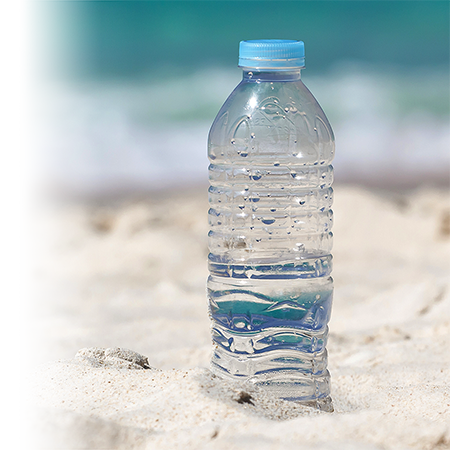Need a consultation related to the health condition discussed in this article? Schedule an appointment with your pharmacist at a time that works for you.
Travellers’ hepatitis, or hepatitis A, is a liver disease caused by a virus that can be prevented. Here is some information on the subject.
What is hepatitis A?
Are you planning to fly to a faraway destination? You’re lucky, but did you know that foreign travel can pose certain health risks? Have you ever heard of travellers’ hepatitis? That’s another name for hepatitis A, a viral infection affecting the liver, which varies in severity and duration.
Some people who contract the hepatitis A virus do not present any particular signs or symptoms. This is especially true for children. However, the virus can cause (especially in adults) flu-like symptoms (fatigue, fever, loss of appetite, etc.), abdominal pain, nausea and vomiting. In the long-term, it can cause other symptoms, like jaundice.
On average, symptoms start a month after contamination. The infection generally heals on its own. The body produces antibodies that eliminate the virus and protect it against a new infection. The disease and convalescence can last for a long time (roughly 3 to 6 months), but in most cases, the person makes a complete recovery. Damage to the liver may be serious in some cases.
Contrary to hepatitis B and C, hepatitis A generally does not cause a chronic infection. Find out if the region you will be visiting poses a high risk of hepatitis A.
How is hepatitis A transmitted?
The hepatitis A virus is found in the stool of infected individuals. Therefore, it is transmitted through contaminated water or food by human excrement. For instance, if an infected person goes to the toilet, omits to wash his/her hands and then touches food; it can infect the people who ingest it. Individuals can also be infected if they touch a contaminated object and then put their hand in their mouth.
The risk of contracting hepatitis A is greater in developing countries, where water may be soiled by fecal matter and, by the same token, contaminate everything that comes into contact with it. Hepatitis A can also be transmitted through sexual contact.
Is there a vaccine against hepatitis A?
Vaccination is the best defence against travellers’ hepatitis. It helps the body to develop antibodies against the hepatitis A virus. There are vaccines available on the market that protect against hepatitis A only, hepatitis B only or both. All of these vaccines are considered safe and effective.
The vaccine that protects against both hepatitis A and hepatitis B is provided free of charge to grade 4 elementary students. It is also provided free of charge for certain people considered at a higher risk of contracting these infections. If you like to travel to sunny destinations, you should consider getting vaccinated.
To maximize the protective effects of a chosen vaccine, it is important to rigorously follow the vaccination schedule. For additional information about the prevention of hepatitis, speak to your pharmacist or a nurse, who provide services and advice on travel health. Several pharmacies offer these types of services. Check with your pharmacy branch.
What are the other prevention measures against hepatitis A?
Aside from vaccination, here are some examples of other ways to protect against hepatitis A during travel.
- Wash your hands thoroughly:
- after having gone to the toilet or having changed a diaper
- after having touched garbage or soiled objects (such as tools or clothing)
- before preparing and eating foods
- If you then dry your hands on a hand towel, make sure it is clean.
- If it is absolutely impossible to wash your hands, the use of hand sanitizer can be considered.
- Make sure surfaces, utensils and the material used to prepare food are clean.
- Avoid foods that may have been contaminated by the virus. In countries where sanitary conditions are poor, avoid consuming:
- tap water or ice cubes
- salads, and fruits and vegetables that you have not peeled yourself
- undercooked meats, eggs or seafood
- food that has been left out at room temperature for too long, food sold in the street or in conditions that are not considered optimal
- non-pasteurized milk products
- If you are accompanied by a person who is affected by hepatitis A, avoid close contact with him/her, such as kissing. Additionally, do not share objects that could be contaminated such as utensils or a toothbrush.
- Use a condom during any sexual contact.
Speak to your pharmacist for additional information about travellers’ hepatitis and on the ways to prevent it.

